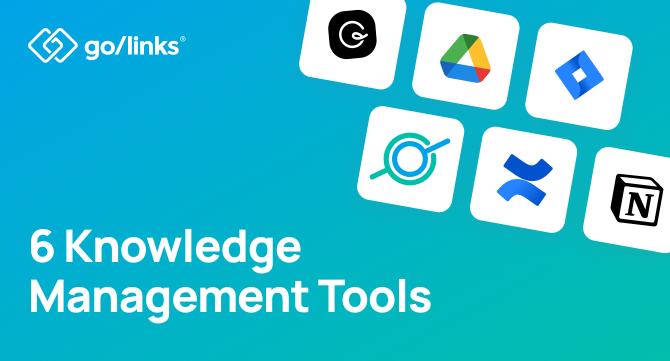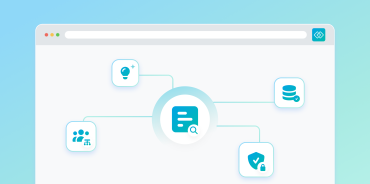If you want your business to run efficiently, you need a reliable way to store, manage, and share information across your organization. That’s where knowledge management tools come in.
What Are Knowledge Management Tools?
Knowledge management tools are software platforms that make it easier for teams to capture, organize, and retrieve information—internal documentation, client details, or project updates. The right tool helps employees find what they need faster, improves collaboration, and boosts overall productivity.
But not all knowledge management systems are the same. Some are built for customer support, others for agile project management, and others for enterprise-wide search and knowledge sharing. Choosing the right tool depends on your business needs.
In this guide, we’ll cover the top six knowledge management tools—their pros, cons, and best use cases—so you can find the perfect fit for your team.
Types of Knowledge Management Systems
Before we jump into the top tools, here are the main categories of knowledge management solutions you’ll encounter:
- Document Management Systems (DMS): Store, organize, and version-control digital documents.
- Content Management Systems (CMS): Create and manage digital content, often for websites.
- Knowledge Base Software: Centralized, searchable repositories for FAQs, troubleshooting guides, and best practices.
- Collaboration Tools: Platforms like Slack or Microsoft Teams that support real-time communication and file sharing.
- Customer Relationship Management (CRM): Manage customer interactions and insights.
- Enterprise Search Systems: Provide powerful search across all of a company’s data sources.
Check out our guide to the knowledge management process for a deeper look at how these systems work together.
1. Guru
Guru acts as a company wiki that integrates directly into employee workflows, ensuring knowledge is always at their fingertips.
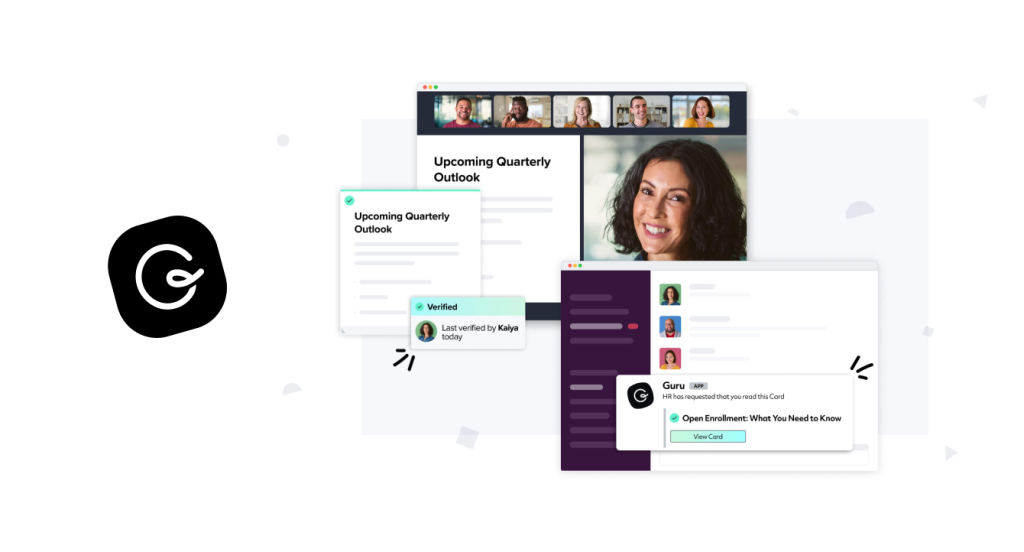
Pros:
- Automated employee onboarding
- AI-powered knowledge suggestions that improve with use
- Knowledge alerts keep employees updated
- Integrates with Slack, Microsoft Teams, and more
Cons:
- Learning curve for new users
- Frequent updates can disrupt workflows
- Template-based searching can be clunky
See how Guru and GoLinks helped Hopin scale knowledge management across teams.
2. Google Drive
Perhaps the most familiar knowledge management tool, Google Drive enables file storage, sharing, and real-time collaboration.
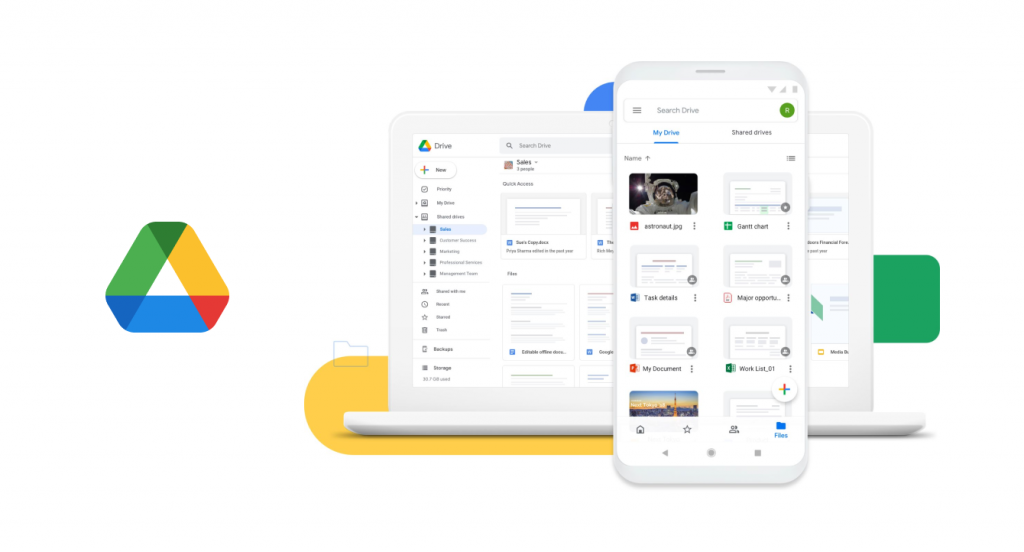
Pros:
- Fine-grained permissions for document security
- Supports 100+ file types
- Malware and phishing protection
- Seamless integration with Google Docs, Sheets, and Slides
Cons:
- External link access can cause data exposure if permissions aren’t set correctly
- File size limits
- Search functionality can be limited for complex knowledge bases
Learn how Signal Advisors combined Google Drive with GoLinks to onboard a remote workforce more effectively.
3. Notion
Notion is a customizable internal wiki and workspace that helps teams organize projects, documents, and workflows.
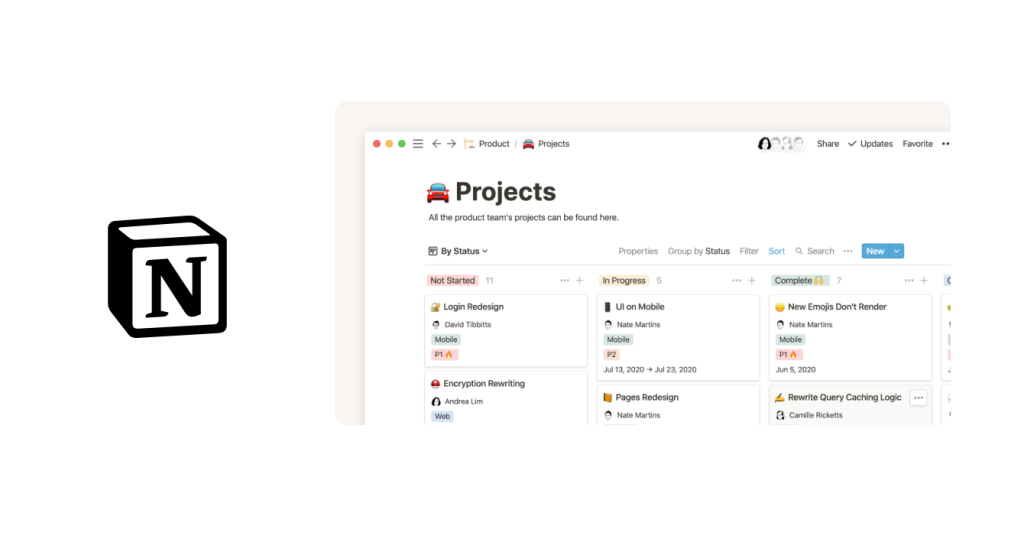
Pros:
- Pre-built templates for fast setup
- Drag-and-drop customization for flexible workflows
- Supports multiple content formats (docs, dashboards, databases)
Cons:
- Feature-rich interface can overwhelm new users
- Searchability is limited compared to dedicated search platforms
Notion is often compared to a corporate wiki, but it can also function as a lightweight intranet when paired with tools like GoLinks.
4. Confluence
Confluence, Atlassian’s knowledge management tool, organizes company information into ‘pages’—collaborative documents employees can create, share, edit, and discuss—and ‘spaces,’ where pages are structured by team, project, or department, making it ideal for organized, structured documentation.
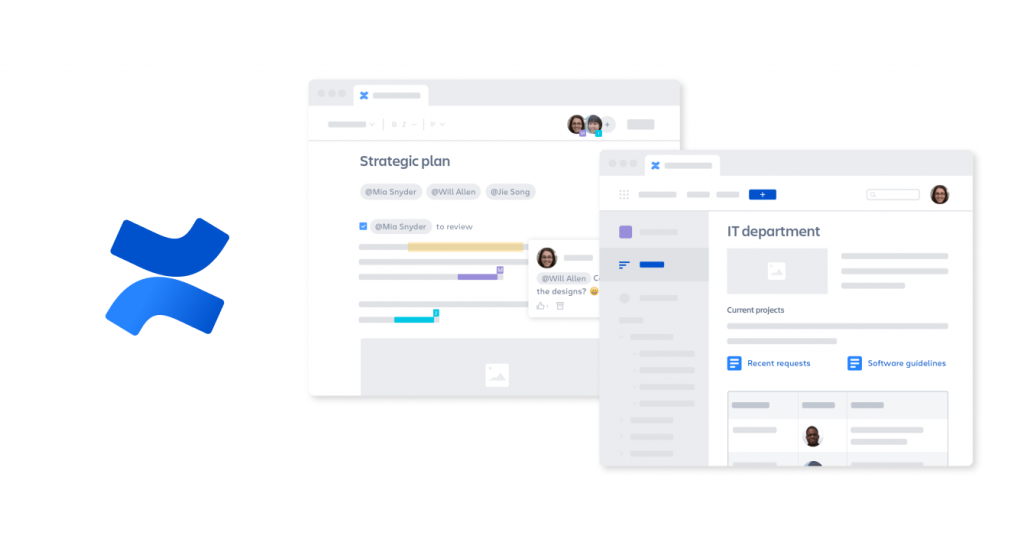
Pros:
- Deep integration with Jira and Atlassian tools
- Permissions for secure document control
- 75+ templates for planning, reporting, and strategy
- Advanced search and tagging system
Cons:
- Steeper learning curve
- Limited integration with non-Atlassian platforms
Check out how Instacart uses Confluence and GoLinks to scale knowledge sharing.
5. Jira
Also from Atlassian, Jira is designed for agile software teams to track projects and sprint progress.
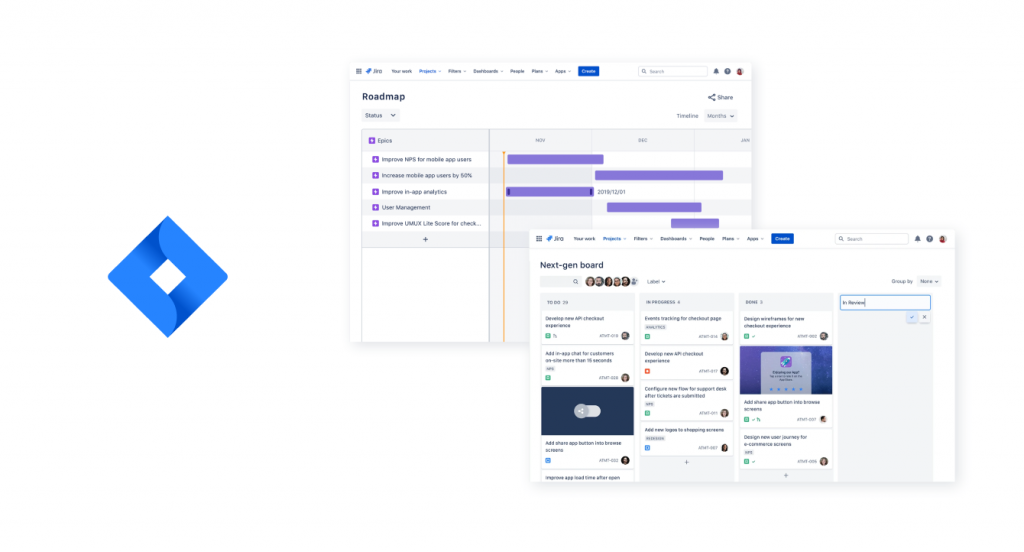
Pros:
- Built around agile methodology
- Clear project overviews and detailed task tracking
- Real-time reporting on team performance
Cons:
- Can feel too specialized for non-technical teams
- Occasional bugs and performance issues
6. GoSearch
GoSearch is an AI-powered enterprise search tool that streamlines how organizations index, search, and retrieve knowledge across their entire digital ecosystem. By leveraging advanced AI algorithms, it delivers accurate, relevant, and real-time search results, making it an essential tool for efficient knowledge management.
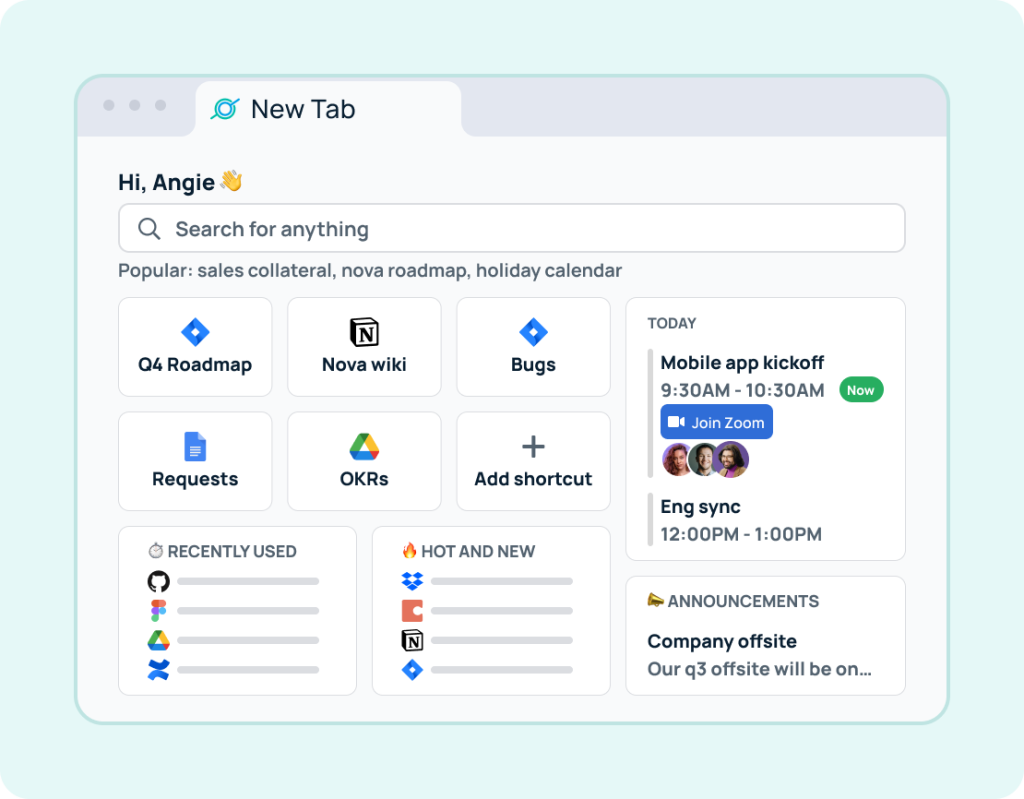
GoSearch Pros
- Data indexed in real time, ensuring accuracy
- 100+ integrations (personal and workplace connectors)
- AI summaries with semantic understanding for faster insights
- 99.9% uptime SLA
- Protects non-indexed private data
- Option to integrate your own LLM API key
- Advanced AI capabilities, including custom GPTs
For more insights, see our full guide on enterprise search software.
How to Enhance Knowledge Management Tools with GoLinks
No matter which knowledge management software you choose, how your team accesses and maintains knowledge determines its long-term success. That’s where GoLinks makes the difference.
GoLinks are short, memorable URLs (like go/wiki or go/sales) that make it easy to instantly access knowledge resources. Unlike long URLs buried in a knowledge base, GoLinks are easy to remember, share verbally, or drop into chat tools—perfect for hybrid and remote teams.
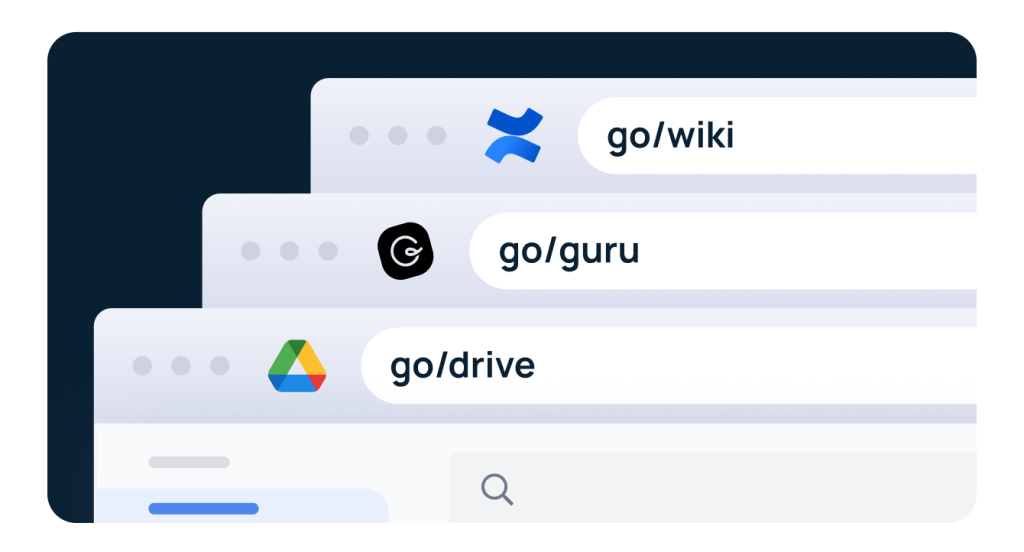
Benefits of using GoLinks with your knowledge management tools:
- Searchability: Helps employees instantly locate the right resource.
- Integration: Works with all major knowledge management platforms.
- Easier Maintenance: Update a GoLink once instead of fixing multiple outdated links.
- Increased Usage: Keeps knowledge bases up-to-date, building trust in the system.
For organizations scaling fast, GoLinks can even serve as the backbone of a centralized employee hub, increasing productivity and efficiency.
Choose The Right Knowledge Management Tools For Your Business
The right knowledge management tool can transform how your organization works—improving efficiency, collaboration, and employee experience. Whether you choose an all-in-one wiki like Notion, an enterprise search platform like GoSearch, or a familiar solution like Google Drive, the key is making knowledge accessible, usable, and always up to date.
And with GoLinks, you can make the most of whichever tool you choose.
Ready to maximize your organization’s knowledge management? Try GoLinks for free today.
Access and share resources instantly with GoLinks
Try for free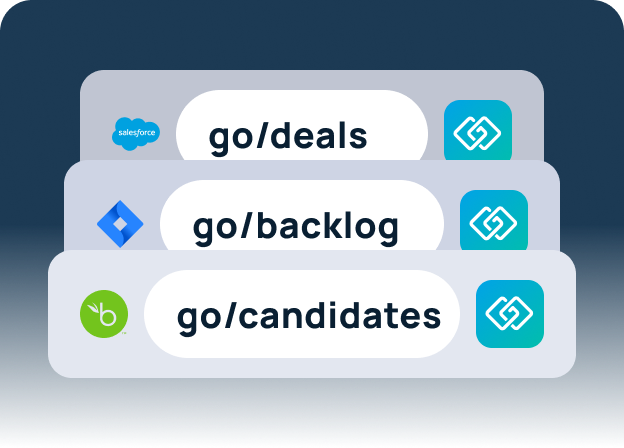
Knowledge Management Tools FAQ: Everything You Need to Know
Knowledge management tools are software platforms that help organizations store, organize, share, and retrieve information efficiently. They improve collaboration, reduce time spent searching for knowledge, and ensure teams have access to the most up-to-date resources.
Examples include Google Drive, Notion, Confluence, Jira, Guru, and GoSearch. Each tool has unique features—ranging from document storage and collaboration to AI-powered enterprise search.
For enterprises managing vast amounts of data, GoSearch is one of the best knowledge management tools. It provides AI-powered semantic search, 100+ integrations, and strong data protection—ensuring employees always find accurate, relevant information quickly.
They reduce time spent searching for documents, provide centralized access to company information, and support collaboration. With integrations and AI-powered search, employees spend more time executing work instead of tracking down resources.
GoLinks create short, memorable URLs (like go/wiki) that make it easy to access knowledge resources in any platform. This increases adoption, keeps knowledge bases updated, and saves time by making knowledge instantly accessible.
